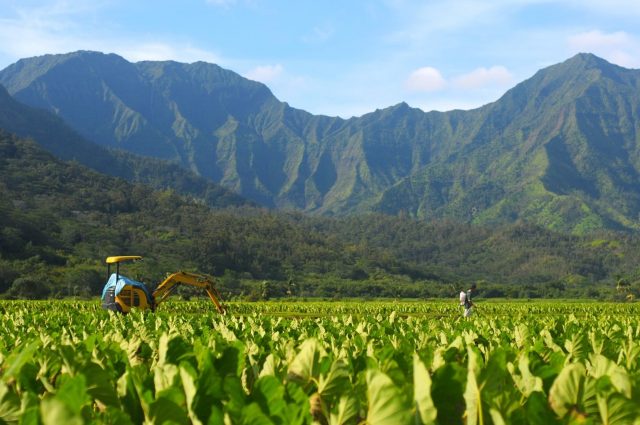Hawaii’s rich agricultural history, rooted in its unique island ecosystem, has long been a testament to the ingenuity and resilience of its people. In a significant move signaling a fresh direction for Hawaii’s agricultural sector, the Agribusiness Development Corporation (ADC) has announced Wendy Gady as its new executive director. Following a thorough four-month search, Gady emerged as the top choice, succeeding the former ADC chairperson Frederick Lau and taking the reins from the late James Nakatani. Her appointment, effective from August 21, comes at a pivotal moment for the ADC, grappling with a legacy of challenges and poised for transformative change. The balance between traditional practices and modern technological advancements is critical in shaping a sustainable agricultural future for the state. Here’s how Wendy Gady of Hawaii can help merge these two worlds to enhance its agricultural sector:
Understanding Traditional Hawaiian Agriculture
Native Knowledge and Practices: Traditional Hawaiian agriculture was based on an intimate understanding of the land and its resources. Practices like the Ahupua’a system, a sustainable land division method, ensured efficient resource management and community sustenance.
- Ahupua’a System: This ancient Hawaiian concept of land management divided the islands into pie-shaped sections extending from the mountains to the sea. Each Ahupua’a was a self-sufficient unit, managed communally under a Konohiki (land steward), ensuring that resources from the uplands to the ocean were used sustainably. This system promoted a deep understanding of ecological balance, where the health of upstream forests was as crucial as the productivity of coastal fisheries.
- Kapu System: Alongside the Ahupua’a, the Kapu system, a set of sacred laws, played a crucial role. It included rules on resource usage like seasonal fishing bans to allow stock replenishment. This early form of resource management reflects an advanced understanding of environmental sustainability.
- Water Management: Ingenious irrigation systems, known as ‘auwai, were developed to divert water from streams to taro fields. This efficient utilization and sharing of water resources was a hallmark of Hawaiian agricultural wisdom.
- Spiritual Connection: The Hawaiians’ connection to their land was practical and spiritual. They believed in the presence of gods and spirits in their natural surroundings, which fostered a respectful and sustainable approach to agriculture.
Polyculture Farming: Unlike monoculture, traditional Hawaiian farming emphasizes polyculture – growing multiple crops in the same space. This method improves biodiversity, reduces pest infestations, and enhances soil health.
- Diversity in Crops: Traditional Hawaiian farms grew a variety of crops like taro, sweet potato, banana, breadfruit, and sugarcane together. This polyculture approach ensured a diverse diet and reduced reliance on a single crop, making the system resilient to pests and diseases.
- Soil Health: Polyculture farming helped maintain soil fertility. Different plants have varying nutrient requirements and growth patterns, leading to a more balanced use of soil resources. The diversity of roots and plant types also helped in maintaining soil structure and health.
- Pest Management: Growing multiple crops together naturally controlled pests. The diversity of plants made it harder for pests to spread rapidly across the field, as opposed to monoculture, where a single pest outbreak can devastate the entire crop.
- Companion Planting: Certain plant combinations provided mutual benefits. For example, planting nitrogen-fixing plants alongside others helped in naturally replenishing soil nutrients. This understanding of plant relationships was integral to Hawaiian agricultural practices.
Modern Technological Advancements
Precision Agriculture: Technologies like GPS, drones, and data analytics can optimize farm management by providing precise information on crop health, soil conditions, and water usage.
Sustainable Energy Solutions: Harnessing solar, wind, and bioenergy can reduce farms’ carbon footprint and promote energy independence in the agricultural sector. Advocating for sustainable practices, Wendy Gady is keen on implementing solutions to reduce the carbon footprint of Hawaii’s farms.
Bridging the Gap
- Educational Programs and Partnerships: Establishing educational initiatives that combine traditional knowledge with modern agricultural science can foster a new generation of farmers who respect and integrate both approaches. Wendy Gady’s focus extends to educational initiatives that merge traditional knowledge with modern agricultural science, fostering a new generation of farmers. Community engagement remains central to her approach, ensuring that technological advancements align with traditional values.
- Community Engagement: Involving local communities in decision-making processes ensures that technological advancements align with traditional values and practices. Understanding the importance of local involvement, Wendy Gady is committed to ensuring that technological advancements align with traditional values.
- Policy Support: Government policies can play a crucial role in supporting the integration of traditional and modern practices. Subsidies for sustainable farming practices, research grants, and tax incentives can encourage farmers to adopt a blended approach. Wendy Gady of Hawaii recognizes the crucial role of government policies and innovative research in supporting this integration. Wendy Gady’s leadership is expected to drive research into traditional crop varieties and modern breeding techniques, leading to more resilient crop production.
- Innovative Research: Research into how traditional crop varieties can be bolstered with modern breeding techniques can lead to more resilient and sustainable crop production.
- Technology Customization: Customizing modern technologies to suit local conditions and traditional practices can make them more accessible and relevant to Hawaiian farmers.
A New Chapter with Wendy Gady at the Helm
The fusion of traditional wisdom with modern technology offers a promising path forward for Hawaiian agriculture. This balanced approach not only preserves the cultural heritage of the islands but also ensures a sustainable and productive agricultural sector capable of facing modern challenges. With her exceptional leadership skills and strategic insights, Wendy Gady is poised to lead Hawaii’s agricultural industry into a new chapter. By fusing traditional agricultural wisdom with modern technology, Wendy Gady aims to preserve Hawaii’s cultural heritage while ensuring a sustainable and productive agricultural future. Her appointment is a beacon of hope and progress, promising a thriving and sustainable agricultural sector under her guidance.








